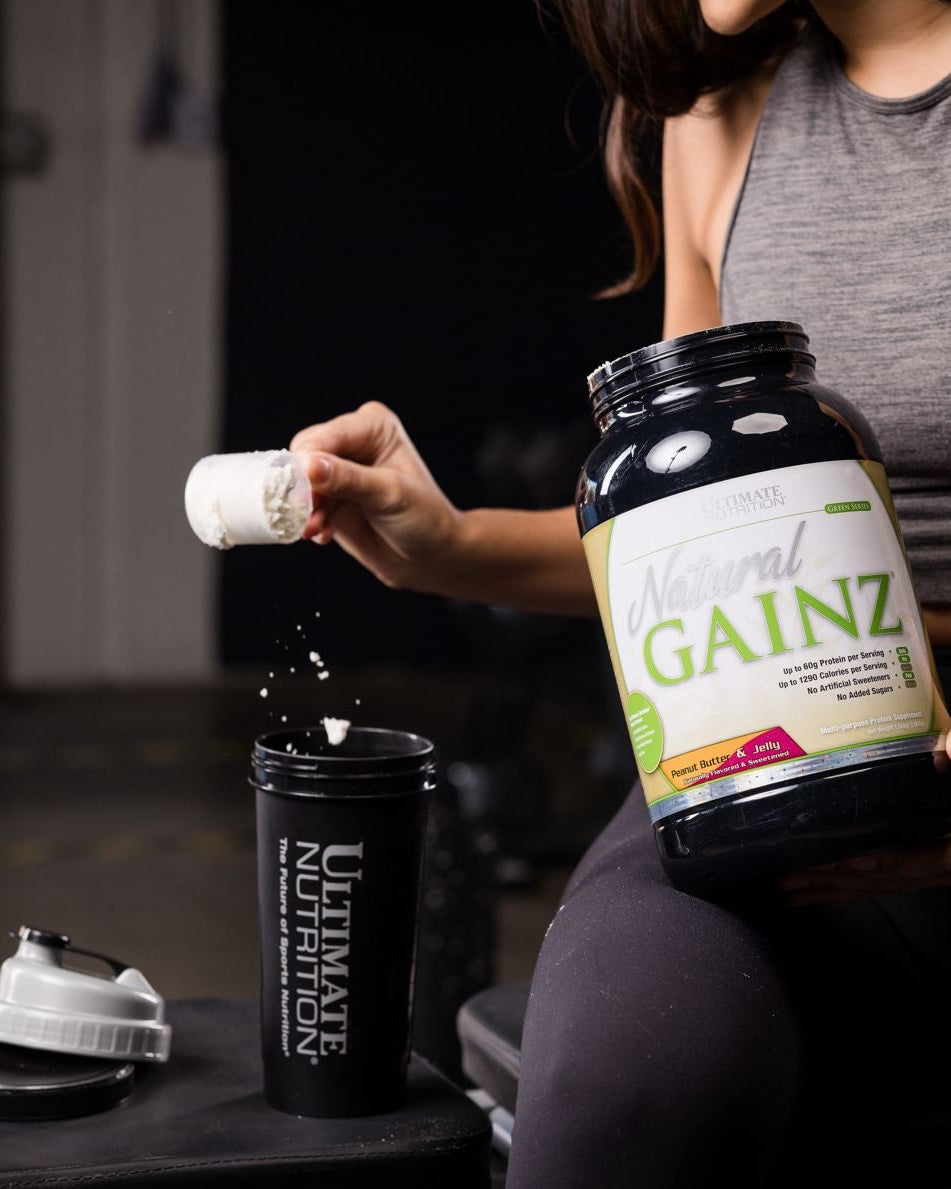The answer is yes. Plain and simple, creatine does make you gain body weight; it can even make you gain weight rapidly. But don’t let that deter you from adding creatine monohydrate to your supplement stack; the pros outweigh this minor con.
Creatine aids muscle repair and growth, raises anabolic hormones, increases cell hydration, counteracts elevated myostatin levels, reduces protein breakdown, and so much more. Creatine benefits athletes and bodybuilders immensely, but yes, the supplement comes with weight gain.
A 2003 study found that after 30 days of high-dose creatine supplementation, participants gained an average of 3.75 pounds. Even a more recent 2016 trial showed that seven days of creatine loading in young soccer players led to an average of 2.2 pounds in weight gain. So yes, creatine does cause weight gain, but it’s not that simple.
The important thing to keep in mind here is that not all weight gain is bad weight gain.
What Is Creatine?
Creatine is not a foreign substance to your body; we all have creatine stored in our muscles. Creatine supplements are used to increase those stores and unlock the benefits of having more creatine than your body can naturally produce.
Creatine is a chemical compound you naturally produce from your body's amino acids, glycine, and arginine. The compound is infamous within the fitness community because of its ability to alter several cellular processes that lead to increased muscle mass, strength, and recovery. Although creatine offers outstanding benefits that surely shouldn’t go ignored, it can also lead to weight gain, which worries some.
Although your body naturally produces creatine, your creatine stores fluctuate depending on your body and lifestyle. Though counterintuitive, this fluctuation isn’t what causes ups and downs in your weight. You’re more likely to begin gaining weight with creatine when you take it consistently as a supplement.

The Weight You Gain on Creatine
The fitness community's expectations of creatine supplementation are clear: to get bigger and stronger. Though you ultimately want to see an increase in lean muscle (and, therefore, weight), you’re probably noticing way too much weight gain in too little time for comfort.
Creatine and weight gain go hand in hand, but as you’re well aware, not all weight gain is equal. You can see the scale go up for a multitude of reasons. When it comes to creatine and gaining weight, it’s sure to happen, but don’t worry; it only means good things.

Water Weight Gain
A part of your expectations when using creatine should be putting on some water weight. Creatine supplements cause water retention more often than not. Creatine is osmotic, which means that when you increase your body’s creatine levels, the creatine can pull in extra water along with it.
Research shows that creatine supplementation increases intracellular and extracellular water — meaning, water levels inside as well as outside of your cells rise.
This extra water weight can be beneficial, especially if you enjoy a “pumped” look. Storing more water inside cells could make you look muscular or “bigger.” Similarly, extracellular water (outside your cells) could lead to minor “bloating” effects that visually resemble fat gain or fluffiness.
Most studies on the subject show that creatine can increase overall water retention, and at least one study showed an increase in extracellular water but not intracellular water.
The weight gain you see from creatine may sometimes result from water retention, making you look more muscular, bloated, or both.

Muscle Mass Gain
Due to the infamous marketing of creatine as a muscle-building supplement, it’s easy to assume your weight gain is caused by increased muscle mass. Water retention’s pump-giving appearance also doesn’t help settle this misconception.
Sady, it’s highly unlikely that your weight gain is due to increased muscle mass, especially in a short period of time.
When it comes to adding on muscle mass, creating works by increasing your performance in the gym; in other words, creatine doesn’t equate to muscle mass; it translates into better performance, leading to muscle gain.
Studies show that a few days to a month of creatine supplementation is unlikely to result in significant, instantaneous lean muscle mass gains. Keep in mind that while getting a couple more reps on your heavy sets certainly pays off over time, it will not add 5-10 pounds of muscle in the next few weeks.
So, in summary, does creatine cause weight gain? Again, yes! Initially, water retention will be the main culprit in any changes you see, but over time, your weight may go up due to the muscle you earn by going harder in the gym.
The Weight You Don’t Gain on Creatine
The positive news is that creatine doesn’t lead to fat gain, so no, creatine can’t make you “fat.” Any rapid weight gain you experience from creatine is virtually guaranteed to be either intracellular or extracellular water weight.
Numerous studies show that short-term creatine supplementation may increase water weight but does not increase body fat levels. Creatine doesn’t contain usable calories and doesn’t appear to interfere with your body’s ability to burn fat.
If your goal is fat loss, there’s no downside to taking creatine. The main challenge you’ll face is seeing a stall in overall weight loss as your body begins to hold onto water.

What to Do About Creatine Weight Gain
When you begin to take creatine, weight gain shouldn’t worry you, especially if it seems more like bloat or pump than fat. Yet, if the fluffiness that comes with creatine supplementation doesn’t sit right with you, there are some solutions.
Keep eating right and training hard, and you’ll get better results thanks to taking creatine. Know that over time your body might shed the extra water weight on its own, even if you continue using creatine.
If you want the bloated look gone ASAP, you have three options: take a break from creatine, sweat out the water, or take supplements that reduce bloating.
If you decide to stop taking creatine, you should return to baseline within a month or so. Working out and sweating is also a great way to reduce water retention; try low-intensity endurance training or enjoy a trip to the sauna. You can also look into green shakes or high-fiber supplements designed to help with bloating.
Again, we urge you to ignore water retention and not let it get the best of you. But, we get it; a loss in muscle definition and an increase in weight are hard to witness sometimes. Try to keep in mind how beneficial creatine can be to your long-term muscle growth, athletic performance, and recovery.
As long as you’re consistent with your diet, training, and recovery periods, creatine will be an incredible asset. Professional athletes worldwide adore creatine and accredit part of their success to its benefits.






















Comments
Whey Protein Concentrate: Fuel Your Fitness Journey. Our premium whey protein concentrate is a pure, natural protein source derived from milk. Packed with essential amino acids, it supports muscle growth, recovery, and overall well-being. Ideal for athletes, fitness enthusiasts, and anyone seeking a convenient protein boost.
For more details : https://1supplements.com/